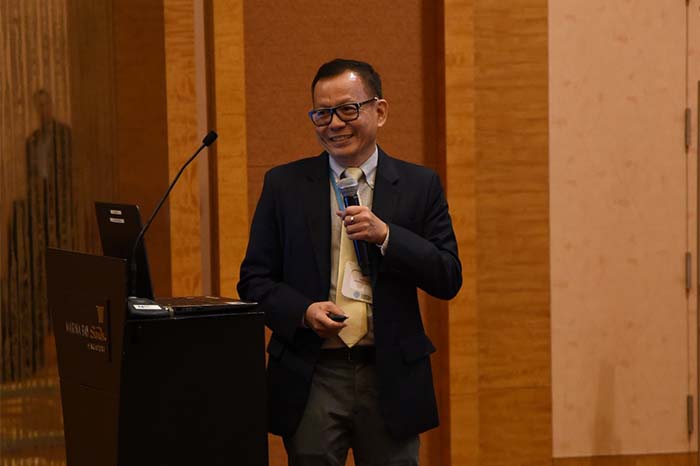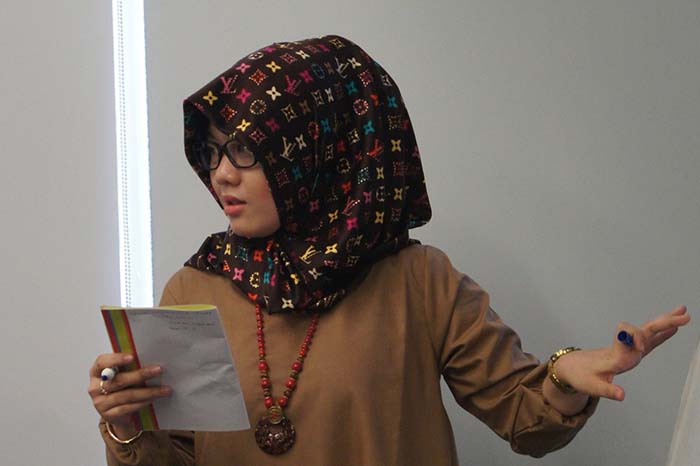
News & Events
Starting Young is Key in Tackling Obesity in Thailand and Indonesia
In June 2017, the Asia Roundtable on Food Innovation for Improved Nutrition (ARoFIIN), in collaboration with the Health Promotion Board (HPB) and the Economist Intelligence Unit (EIU), launched a report titled “Tackling Obesity in ASEAN”, to guide policymakers, health organisations and the food & beverage industry in taking on the rising threat in the region. To ensure that the reports findings were used to drive positive change, ARoFIIN has hosted a series of in-country workshops. Gathering academia, government, industry and civil society across Malaysia, Thailand, Indonesia and the Philippines, ARoFIIN has identified targeted interventions to tackle obesity, with a focus on nutrition education to children.
A bottom-up approach was central to the suggested interventions across the workshops. Each country had a unique proposal to tackle the growing obesity prevalence in its country, tailored to its respective social and cultural situation, because a “one-size-fits-all” approach would not sufficiently address such a multi-factorial, multi-dimensional problem.
ARoFIIN speaks to the stakeholders driving the pilot programmes in Thailand and Indonesia who will also be speaking at the 4th ARoFIIN Roundtable on 26 July to share more on the initiatives to improve health in children.
Both pilots have a specific focus on nutrition education, why is this a key aspect of overall efforts to curb public health challenges?
Dr Visith Chavasit, Mahidol University: The double burden of malnutrition still remains as public health problem in Thailand, of which overnutrition continues to increase. As a country that has been quite successful with universal health care programs, nutrition education has been recognized as an important tool for sustainably preventing nutrition problems.
The Nutri-Teacher programme aims to use students as messengers to their families, who are also part of the community. As the students become more knowledgeable, self-assessment and self-monitoring can occur within individuals, families and communities.

Dr. Visith Chavsit, Professor at Mahidol University, sharing some of the outcomes of ARoFIIN’s regional workshops at the Promoting Healthy Eating and Active Lifestyle in Asia through Public-Private Partnerships held in partnership session organised by ARoFIIN in collaboration with the Responsible Business Forum on 21 November 2017 at the Marina Bay Sands, Singapore.
Diandra Pratami, World Food Programme: More than one third of school-aged children in Indonesia do not consume enough nutritious food for healthy growth and development. Poor nutrition means they are more likely to fall sick and miss school. Being hungry makes it hard to concentrate in class and get good grades.
To give every student the opportunity to succeed, the Government of Indonesia has revived its national school meal programme. Three times per week, children receive a nutritious breakfast made from locally-sourced ingredients. This benefits local communities. In addition to receiving nutritious breakfasts, children learn about nutrition, health and hygiene.
The World Food Programme (WFP) helps the Government of Indonesia ensure that the meals and education materials meet the highest international standards. We developed nutritious menus, helped train cooks, teachers and farmers to implement the programme. Importantly, we’re working with the ministry and district officials’ capacity to monitor the meals’ impact and ensure that every rupiah invested contributes to stronger, smarter and more successful Indonesian children.
With support from ARoFIIN, the promotion of fruit and vegetable consumption will be emphasized through WFP’s effort to support the national school meals programme implementation.

Diandra Pratami, Government Partnerships Officer at World Food Programme (WFP), speaking on Public Private Partnership in Food Security and Nutrition at the National Workshop on Food Security and Nutrition 2018, organized by Indonesian Institute of Sciences (LIPI) and Ministry of National Development Planning (BAPPENAS) on 4 July 2018 in Jakarta, Indonesia.
How is this initiative different from other national public health campaigns?
VC: For this initiative, it begins at the school teacher to school children and finishes at the community level, in which school children play important role in evaluating their and their family members’ healthy behaviors. One set of data can be used for judging healthy behaviors of a family, classroom, school, community or larger. An individual, family or community uses the scores for monitoring and improving their healthy behaviors. The successful programme should strengthen the community in terms of nutrition literacy and public health preventive measures. In fact, the self-assessment checklist is a multi-purpose tool, which can be used for nutrition education and personal health monitoring. In addition, it can also be used as a measure of healthy behavior for individuals and communities.
DP: All of WFP’s work in Indonesia is to support the Government’s own programme to achieve its development targets. Together, we leverage the meal not only as a source of nutrition, but also as an economic opportunity for local family farmers. We foster sustainable school feeding supply chains and at the same time promote nutritious, balanced diets to the school children, teachers, and the cooks whose are mostly mothers.
This initiative is ensuring that Indonesia’s most important asset, it’s children, grow strong, healthy and smart. The partnership aims to strengthen the impact of national school meal programs to improve fruit and vegetable consumption.
Both initiatives adopt a collaborative, bottom up approach, how will this help to tackle the dual burden of malnutrition?
VC: From past successful experiences of Thailand in reducing undernutrition problem, community involvement is a key factor. The bottom up approach can bring the concept of self-reliance on public health preventive measure. Self-assessment score can lead an individual or even a community in the right direction for healthy behavior improvement by themselves.
DP: High rates of stunting, wasting, and increased prevalence of overweight and obesity can be found in all wealth quintiles of Indonesia’s population, from the poorest to the wealthiest. Diet, along with income, gender, access to food, health services and adequate sanitation, plays a significant role in nutrition. Evidence shows that Indonesians do not yet eat a balanced diet: on average, they consume twice as much cereals and less than half the recommended daily allowance of fruit and vegetables.
The latest endline study report shows that school meals programme in Indonesia improved student’s knowledge of nutrition and personal hygiene. It also found that children reported falling sick less frequently and the students were able to concentrate better. By strengthening the promotion of fruit and vegetables in the national school meals programme, we would expect more improvements in children’s knowledge of the importance of balanced diet, especially having fruits and vegetables in their meals.

The 4th ARoFIIN Roundtable will take place on 16 July at the Pullman, Thamrin in Jakarta, Indonesia. This roundtable will bring together academia, civil societies, the public and private sectors from across the region to discuss and initiate multi-stakeholder strategies that drive food innovation, a positive shift in consumer behaviour and therefore fixing the broken food system to end all forms of malnutrition.

